*NURSING > TEST BANK > Chapter 36_ Preoperative and Postoperative Care _ Nursing School Test Banks Questions and Answers (All)
Chapter 36_ Preoperative and Postoperative Care _ Nursing School Test Banks Questions and Answers
Document Content and Description Below
Chapter 36: Preoperative and Postoperative Care MULTIPLE CHOICE 1. When planning care for a surgical patient, the nurse recognizes that surgical site infections account for what percentage of hospi... talacquired infection? a. 22% to 40% b. 5% to 10% c. 45% to 70% d. 75% to 100% ANS: A The National Nosocomial Infections Surveillance (NNIS) system of the Centers for Disease Control and Prevention (CDC) reports that surgical site infections (SSIs) account for up to 16% of hospitalacquired infections. Current research indicates that 38% of hospitalacquired infections are surgical site infections. DIF: Cognitive Level: Application REF: Text reference: p. 881 OBJ: Explain the rationale for preoperative procedures. TOP: HospitalAcquired Infections KEY: Nursing Process Step: Assessment MSC: NCLEX: Physiological Integrity 2. The goal of prophylactic antibiotic therapy is to protect the patient from infection with as little risk as possible. To achieve this goal, the nurse recognizes that antibiotics should be administered when they will Students Chat Room 13 2/20/2017 Chapter 36: Preoperative and Postoperative Care | Nursing School Test Banks https://nursingtestbank.info/chapter36preoperativeandpostoperativecare/ 2/23 be most beneficial. When would that be? a. Twentyfour hours before surgery b. For 2 weeks after surgery c. For no longer than 24 hours after surgery d. When signs of infection first appear ANS: C Overall, it is recommended that prophylactic antibiotics be given as close to the time of incision as possible (within 30 to 60 minutes) and not be given for longer than 24 hours postoperatively. However, vancomycin and fluoroquinolones may be given up to 2 hours before incision because of their longer infusion times. The goal of prophylactic antibiotic therapy is to protect the patient from infection with as little risk as possible. To achieve this goal, antibiotics must be administered when they will be most beneficial. DIF: Cognitive Level: Application REF: Text reference: pp. 881882 OBJ: Describe the activities needed to prepare a patient for surgery. TOP: HospitalAcquired Infections KEY: Nursing Process Step: Implementation MSC: NCLEX: Physiological Integrity 3. While planning care for a surgical patient, the nurse recognizes that which of the following effects of hyperglycemia is seen in the immediate postoperative period? a. Increases risk for infection in the diabetic patient only b. Decreases risk for surgical site infection c. Increases risk for infection in diabetic and nondiabetic patients Students Chat Room 13 2/20/2017 Chapter 36: Preoperative and Postoperative Care | Nursing School Test Banks https://nursingtestbank.info/chapter36preoperativeandpostoperativecare/ 3/23 d. Has no effect on the body’s ability to fight infection ANS: C The presence of hyperglycemia in the immediate postoperative period increases the risk for infection in both diabetic and nondiabetic patients. The higher the serum glucose, the greater the potential for infection in both patient groups. Hyperglycemia has been shown to inhibit the body’s ability to fight infection. Immediate postoperative glucose control also has been correlated with a reduction in surgical infection. DIF: Cognitive Level: Application REF: Text reference: p. 882 OBJ: Explain the rationale for preoperative procedures. TOP: Hyperglycemia KEY: Nursing Process Step: Implementation MSC: NCLEX: Physiological Integrity 4. The nurse is to obtain an informed consent for a patient before surgery is performed. The nurse recognizes that which of the following statements is true? a. Informed consent is required by law to protect the surgeon in case of an adverse outcome. b. Only the patient can sign a surgical consent. c. The nurse’s legal responsibility is to ensure that the patient understands the information presented. d. The surgeon should give the patient information about the surgery. ANS: D The surgeon should give the patient information about the extent and type of surgery, alternative therapies, usual risks and benefits, and consequences of not having surgery in a nonthreatening manner, as outlined in The Patient Care Partnership developed by the American Hospital AssoScitautidonen(AtHs AC)h. IantfoRrmoeodmcons1e3nt is 2/20/2017 Chapter 36: Preoperative and Postoperative Care | Nursing School Test Banks https://nursingtestbank.info/chapter36preoperativeandpostoperativecare/ 4/23 required by law to help protect patients’ rights, their autonomy, and their privacy. The patient or the patient’s legal guardian must sign a surgical consent form that includes this information. If the patient’s cultural practices include male dominance, the husband, father, or oldest brother of a female patient also may need to sign the consent form. It is the nurse’s ethical (not legal) responsibility, acting as the patient’s advocate, to ensure that the patient understands the information. See institutional policy regarding consent. DIF: Cognitive Level: Application REF: Text reference: p. 883 OBJ: Explain the rationale for preoperative procedures. TOP: Informed Consent KEY: Nursing Process Step: Implementation MSC: NCLEX: Physiological Integrity 5. The nurse is planning care for a preoperative patient. Which intervention is implemented to ensure safe nursing care? a. Allowing the patient to have ice chips b. Always keeping the patient NPO for 12 to 14 hours before c. Allowing the patient to brush teeth and swallow water d. Allowing the patient to take specifically ordered oral medications with small amounts of water ANS: D Patients may take oral medications with sips of water (30 mL) if they are specially ordered to be taken preoperatively (e.g., antiarrhythmic or seizure medications). All other oral medications are withheld. The nurse must later check postoperative orders to ensure that scheduled medications unrelated to surgery are not forgotten. In general, food and fluids are withheld for 4 to 8 hours before surgery requiring general anesthesia, to minimize the risk for aspiration. Patients may brush their teeth but should not swallow water. DIF: Cognitive Level: Application REF: Text reference: p. 886 Students Chat Room 13 2/20/2017 Chapter 36: Preoperative and Postoperative Care | Nursing School Test Banks https://nursingtestbank.info/chapter36preoperativeandpostoperativecare/ 5/23 OBJ: Adequately prepare a patient for surgery. TOP: Preoperative Medication Administration KEY: Nursing Process Step: Implementation MSC: NCLEX: Physiological Integrity 6. The nurse is providing the patient with preoperative education. When the nurse informs the patient that she will not be able to wear makeup, the patient states, “But I never go anywhere without my makeup.” The nurse’s response is based on what rationale? a. She will speak with the surgeon to see if he will make an exception. b. The patient may wear makeup if she insists. c. Makeup makes it difficult for the surgeon to assess the patient. d. Makeup impedes circulation. ANS: C Instruct the patient to remove hairpins, clips, wigs, hairpieces, jewelry, including rings used in body piercings, and makeup (including nail polish and acrylic nails). Makeup, nail polish, and false nails impede the assessment of skin and oxygenation. In addition, acrylic nails harbor pathogenic organisms. Makeup does not impede circulation. [Show More]
Last updated: 1 year ago
Preview 1 out of 23 pages
Instant download
.png)
Buy this document to get the full access instantly
Instant Download Access after purchase
Add to cartInstant download
Reviews( 0 )
Document information
Connected school, study & course
About the document
Uploaded On
Sep 09, 2021
Number of pages
23
Written in
Additional information
This document has been written for:
Uploaded
Sep 09, 2021
Downloads
0
Views
51

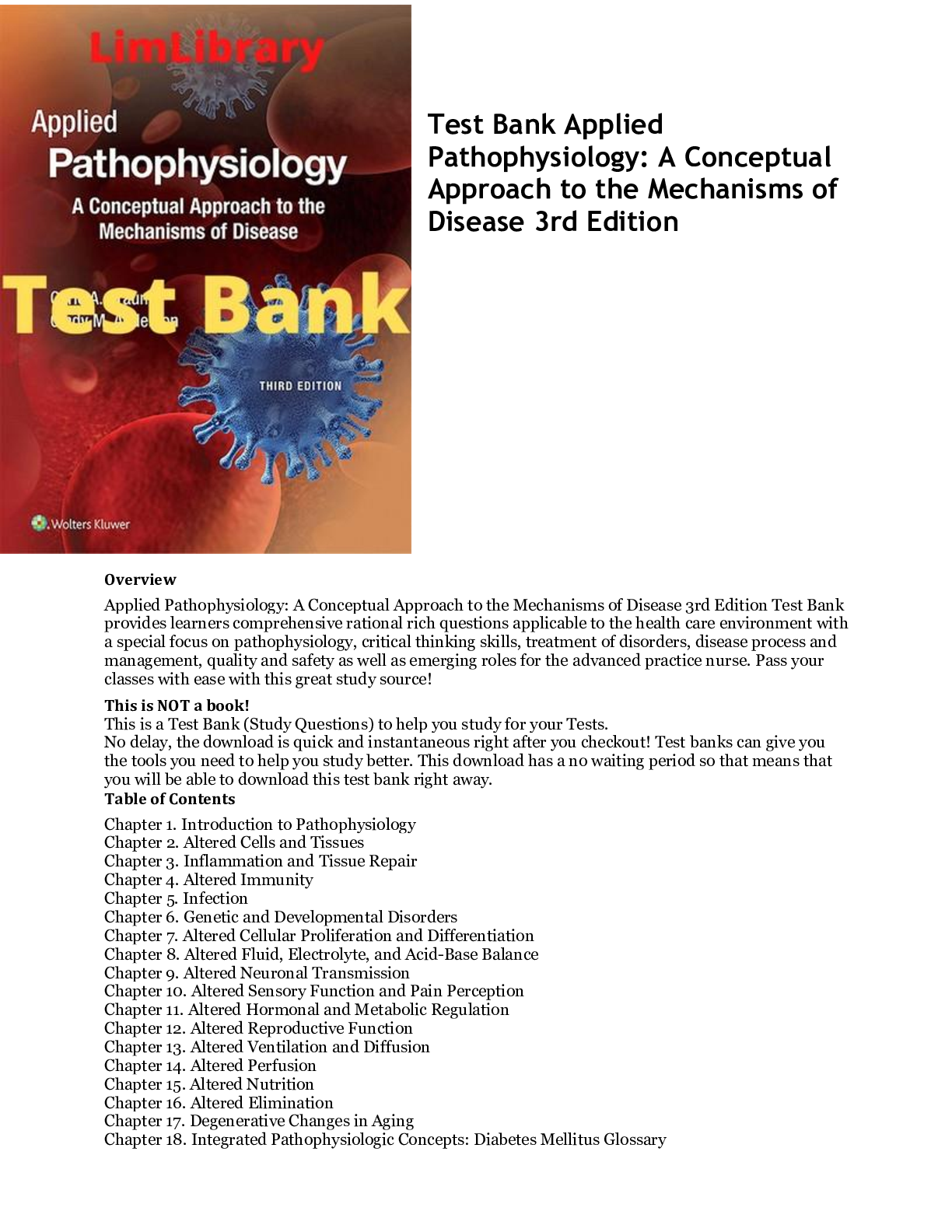
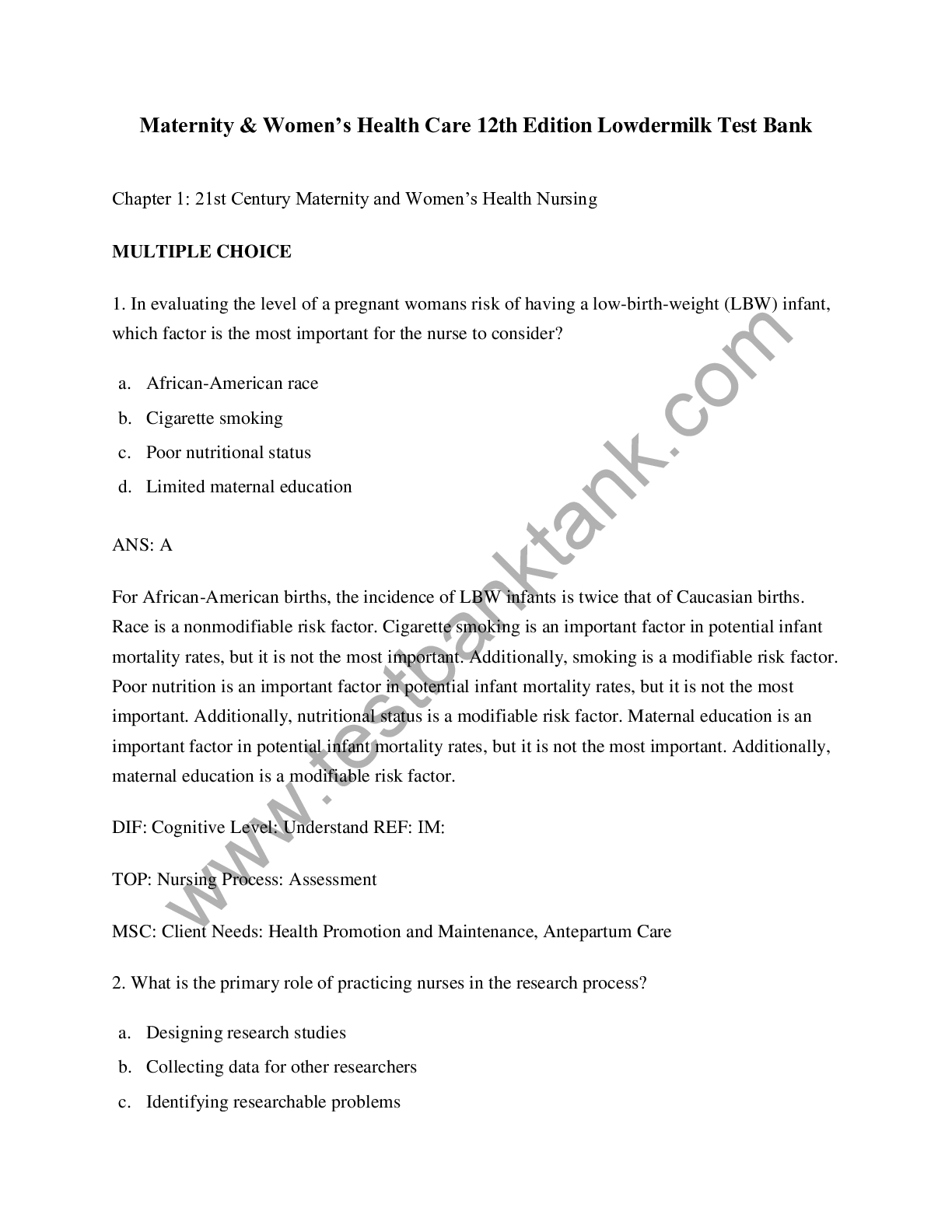
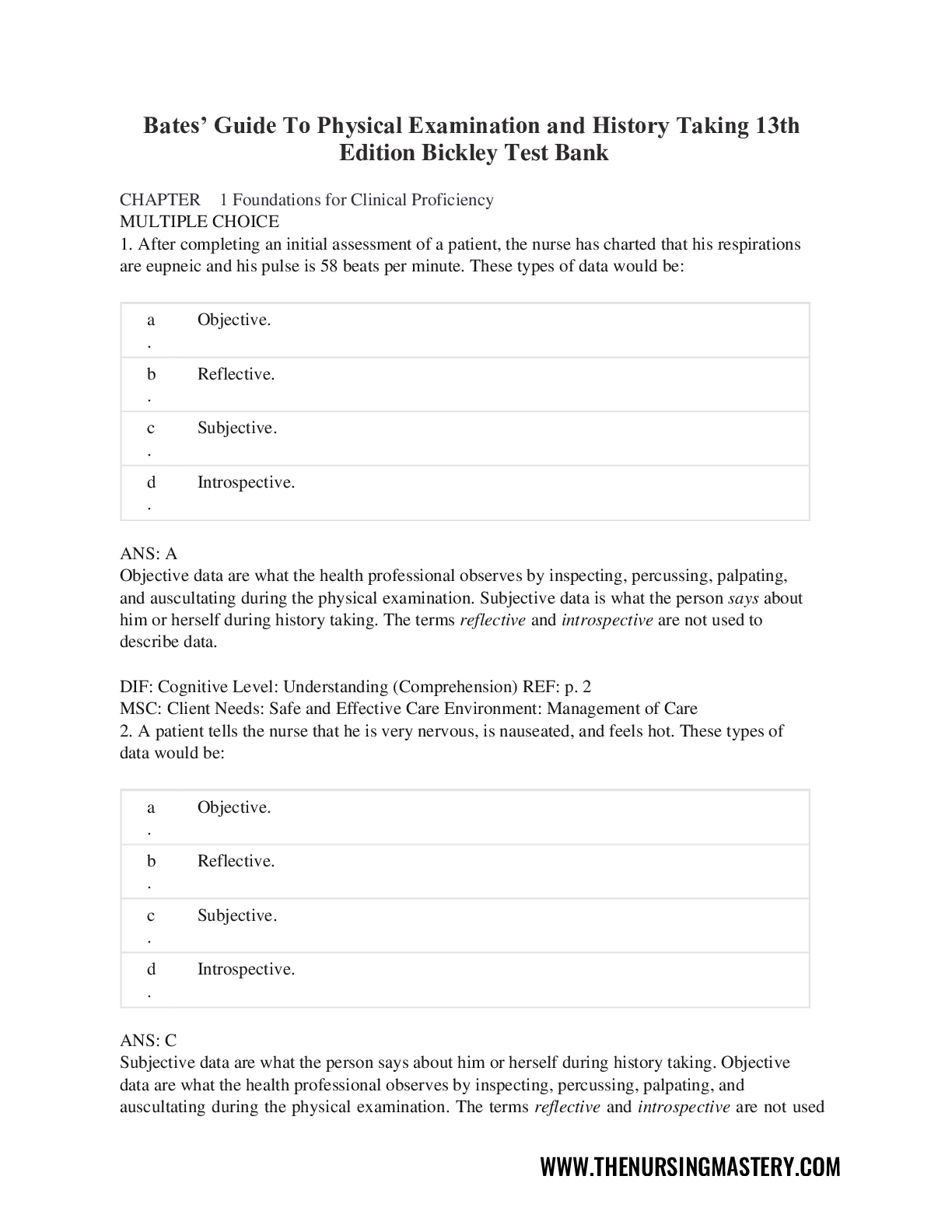
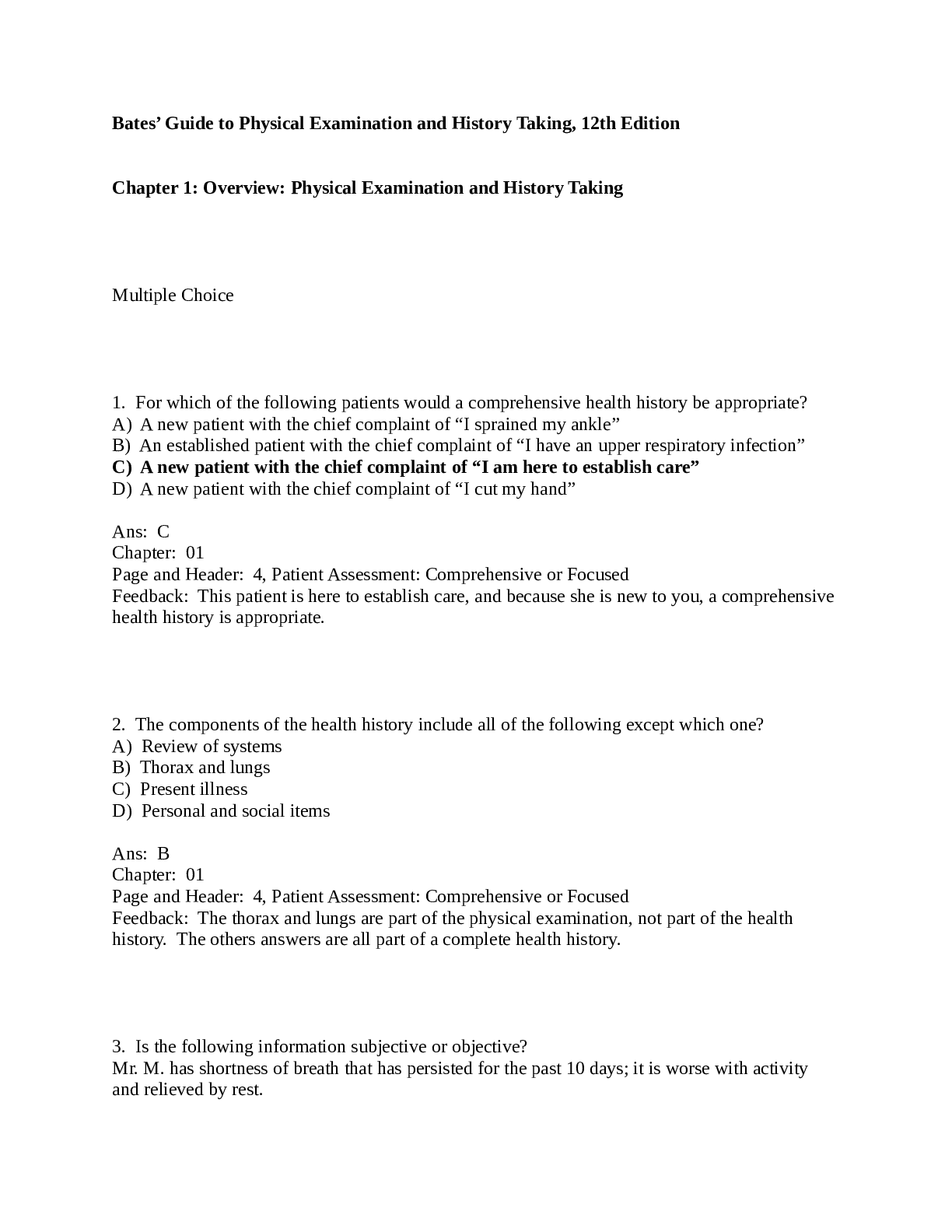
.png)
.png)
.png)

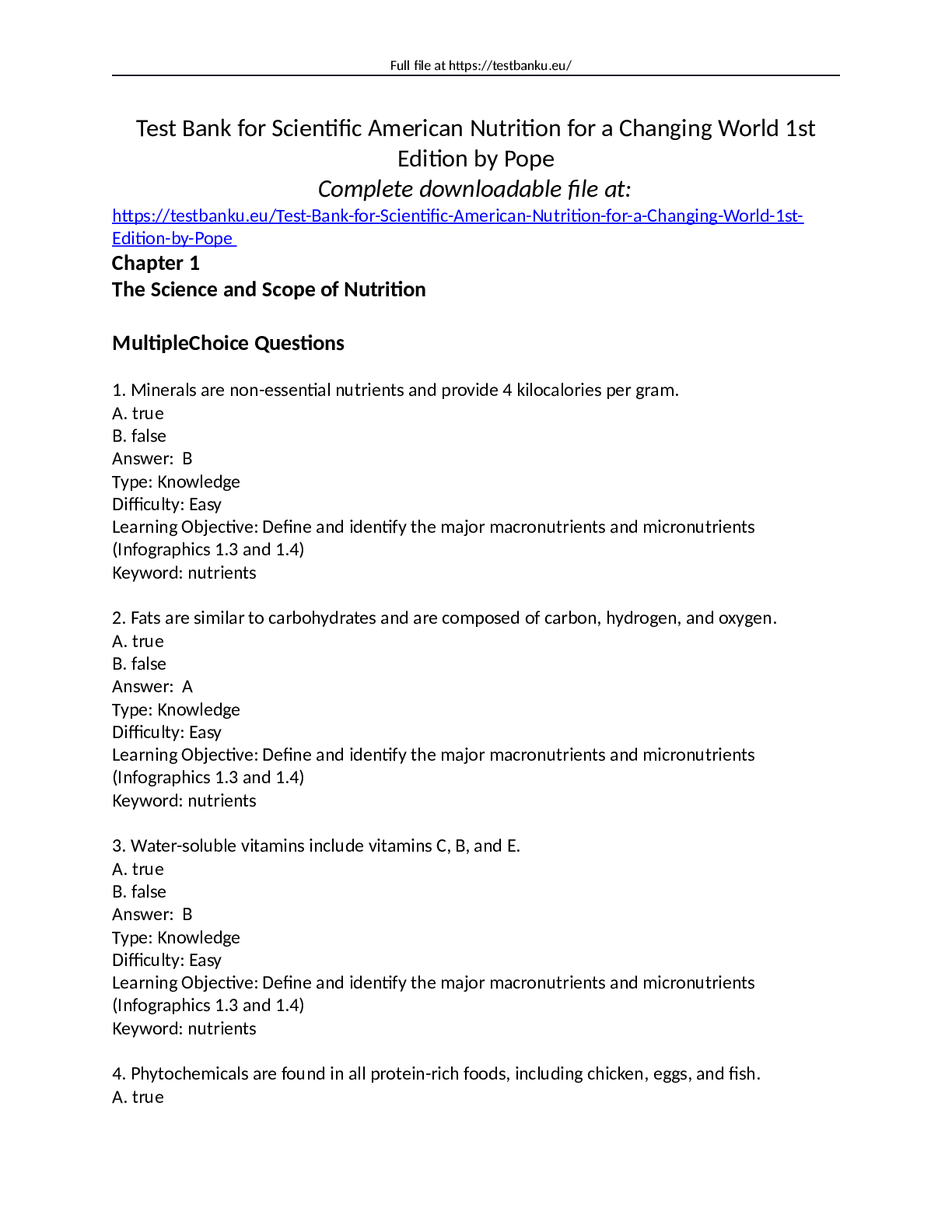
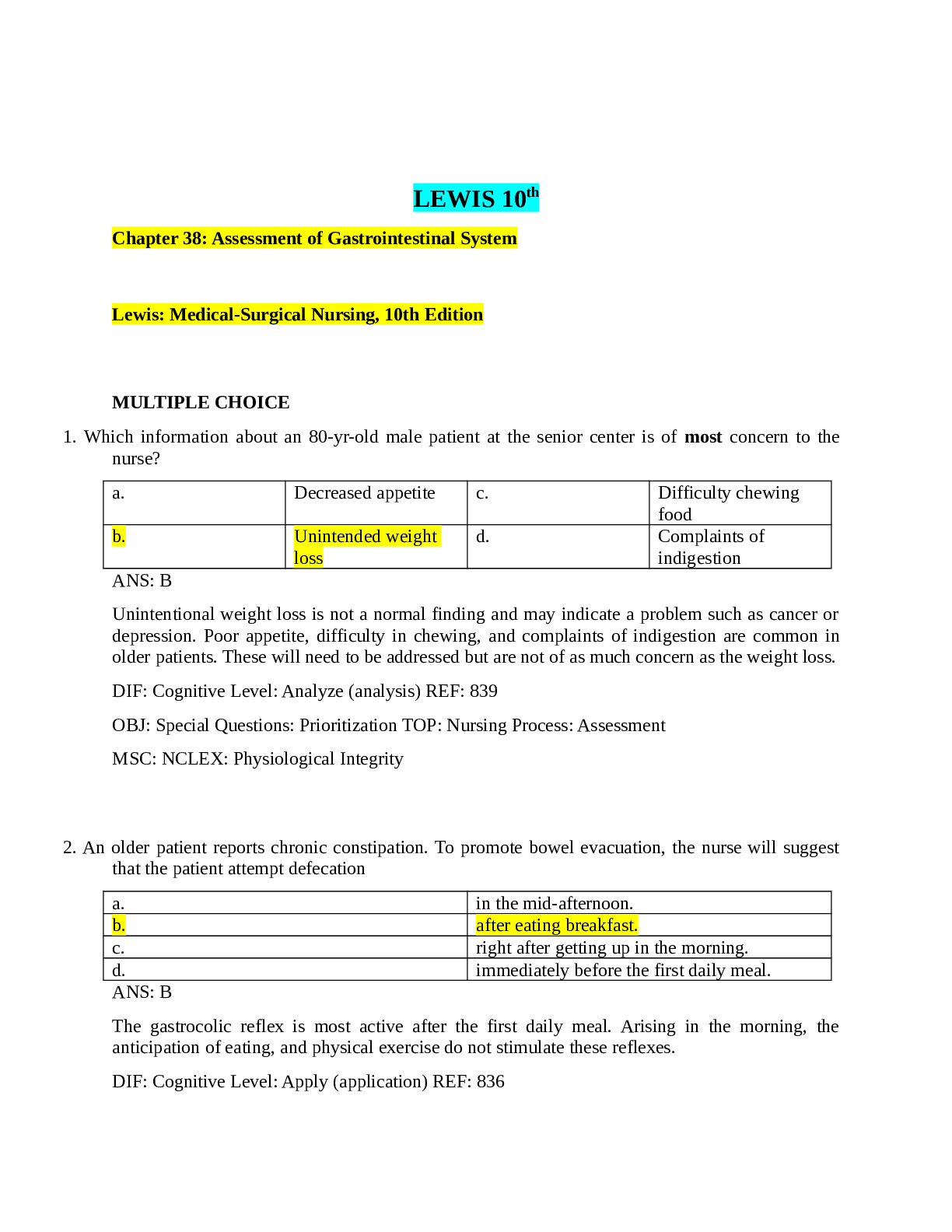

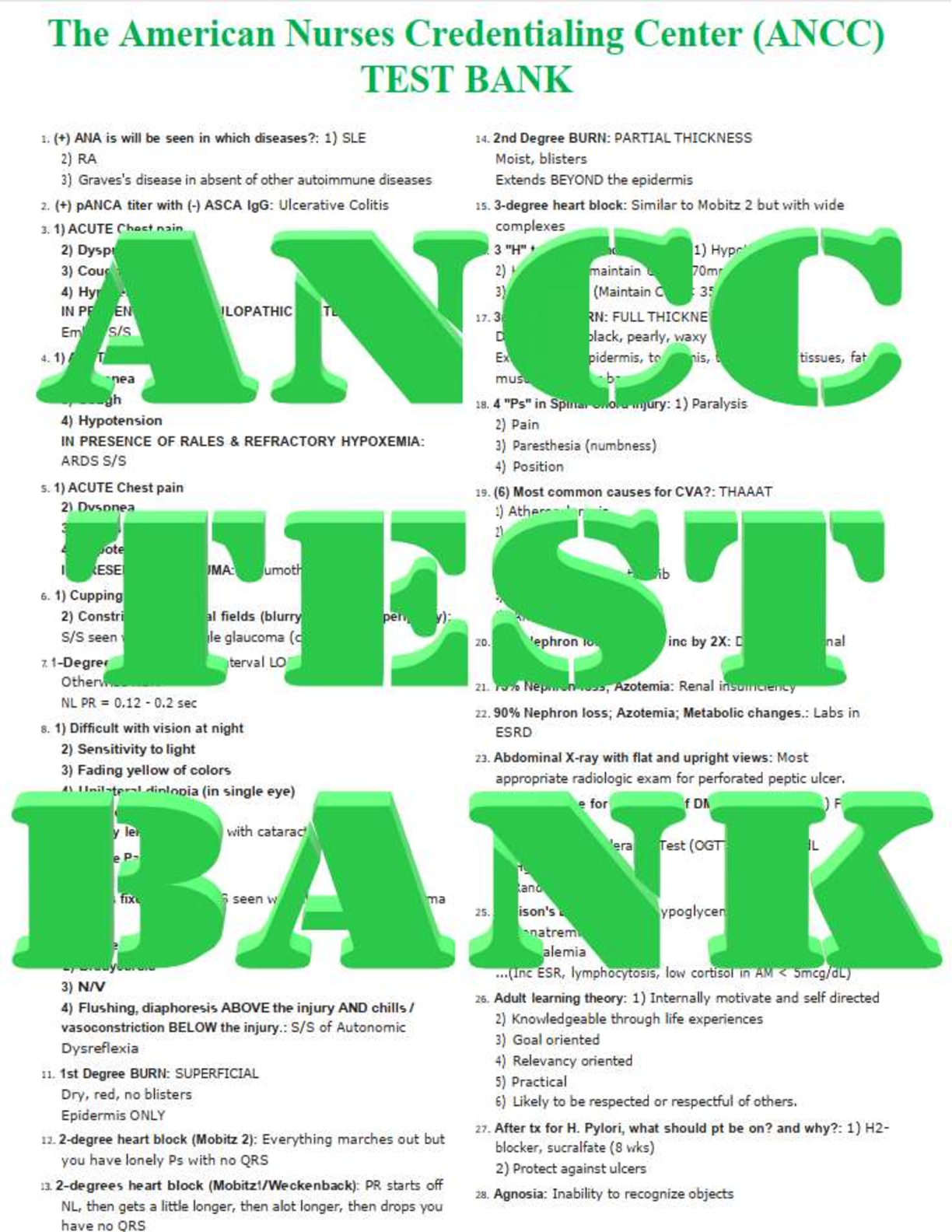
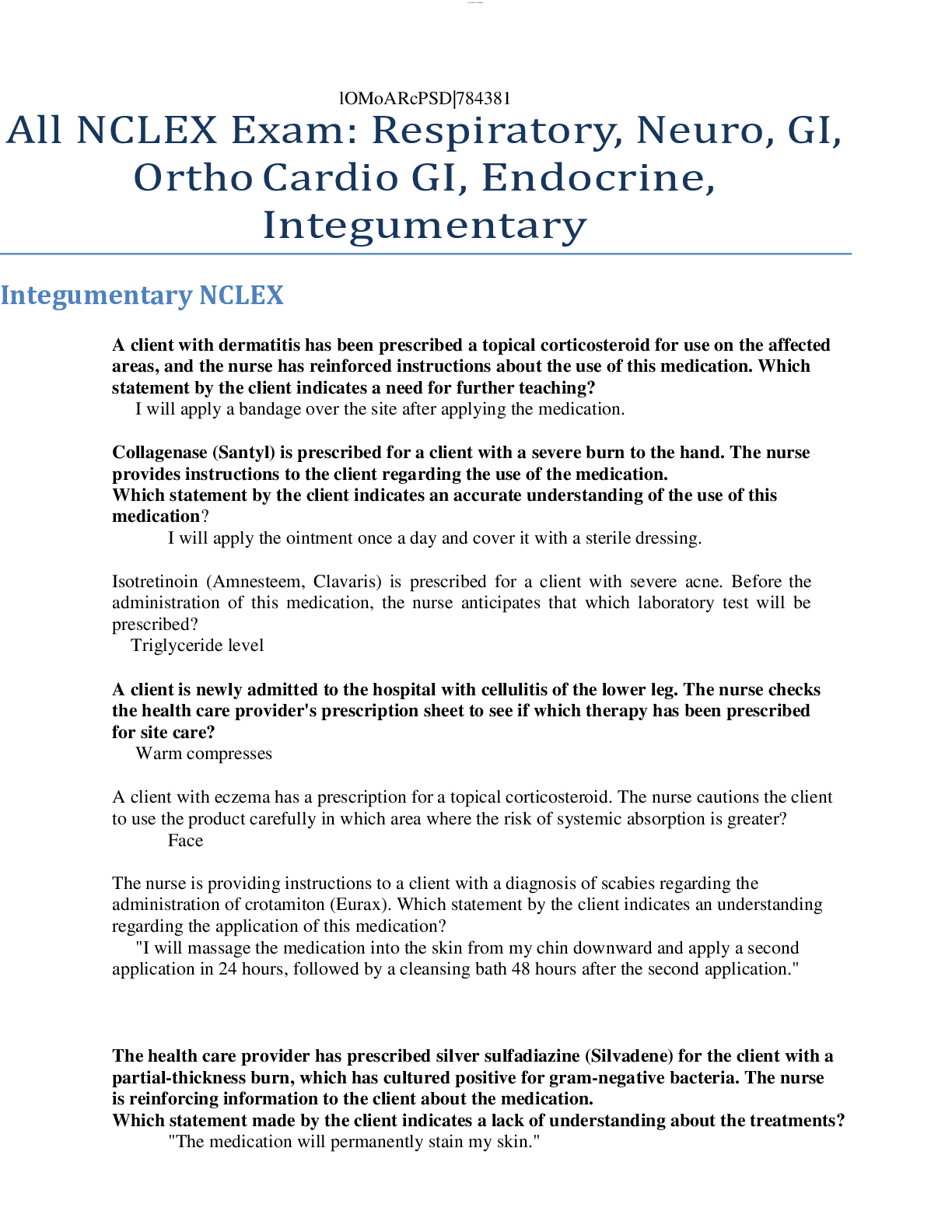
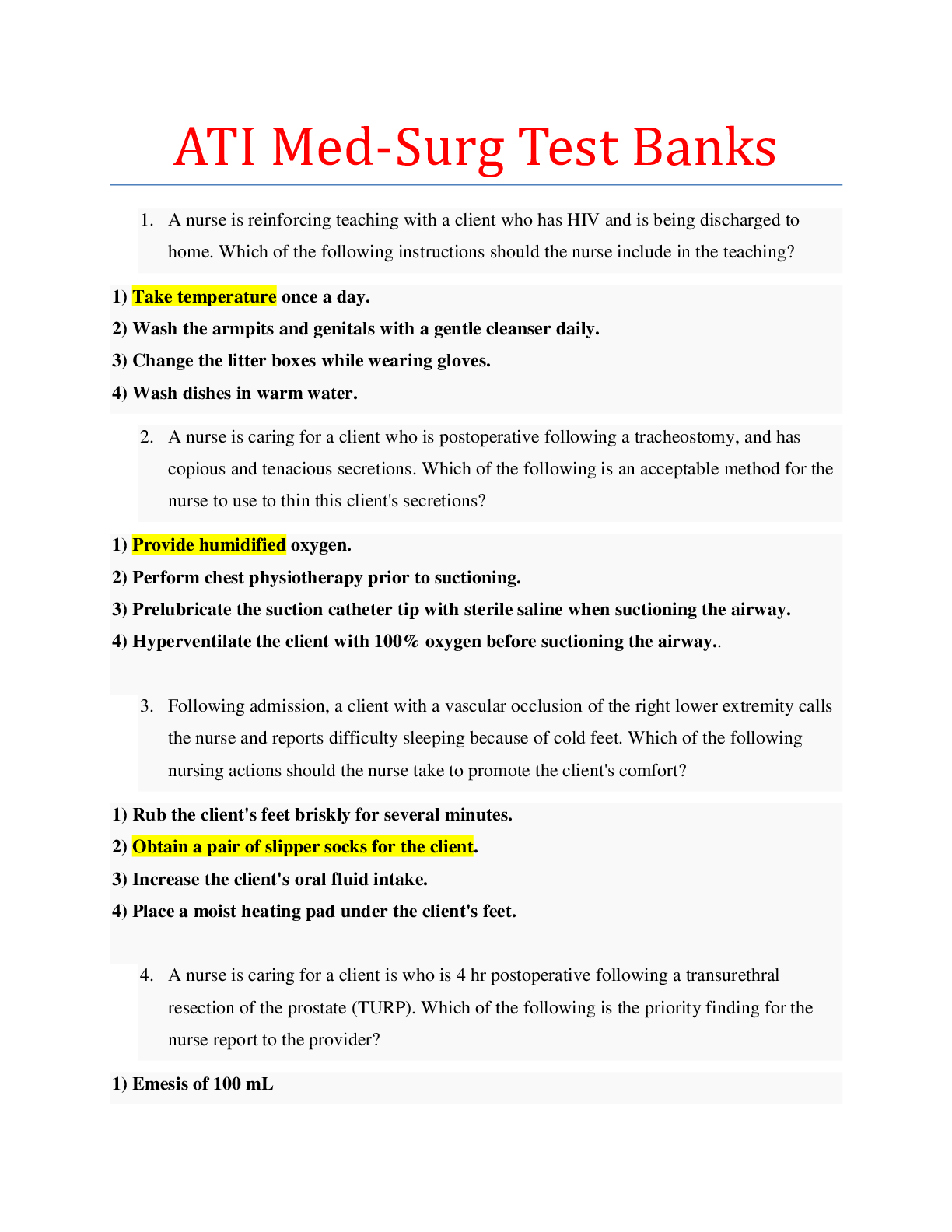
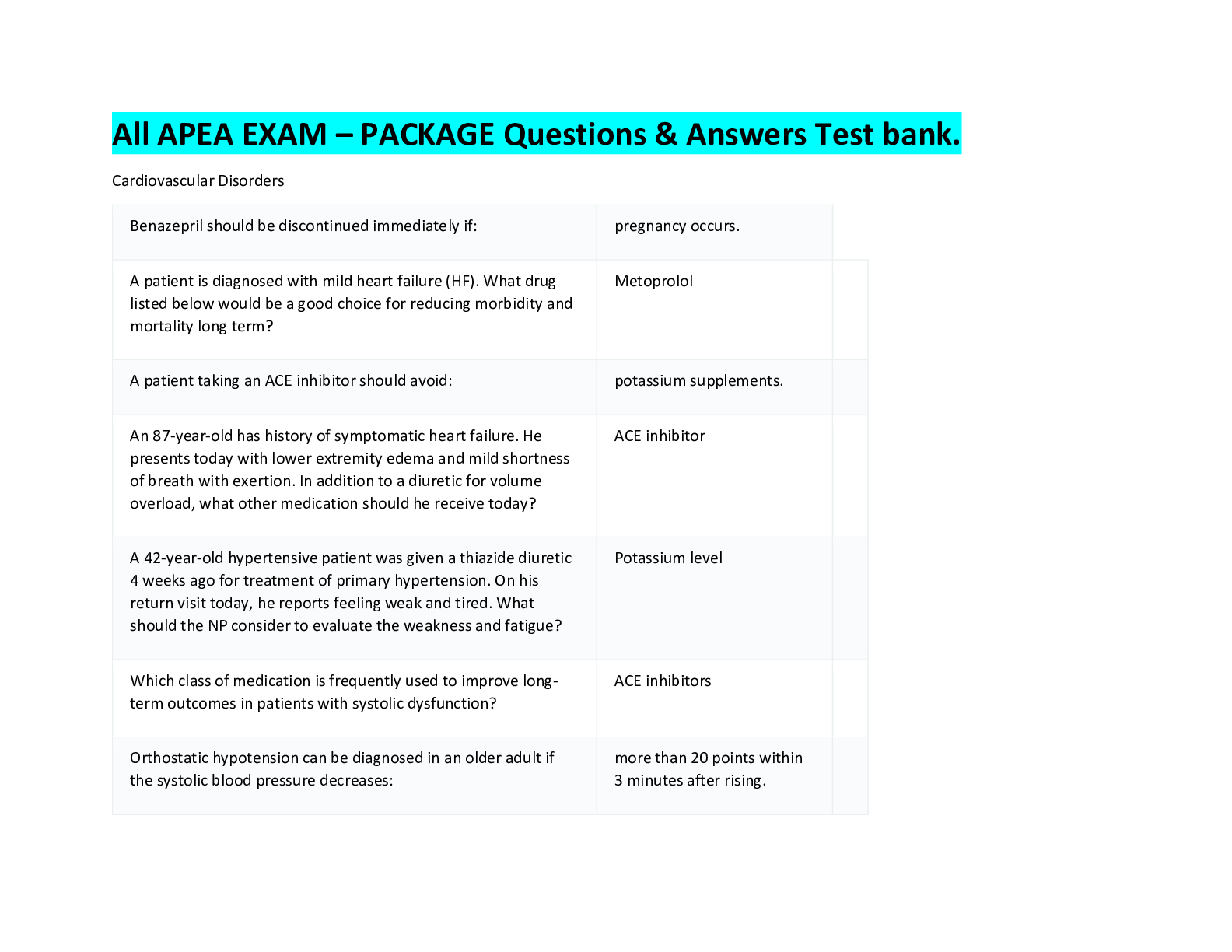
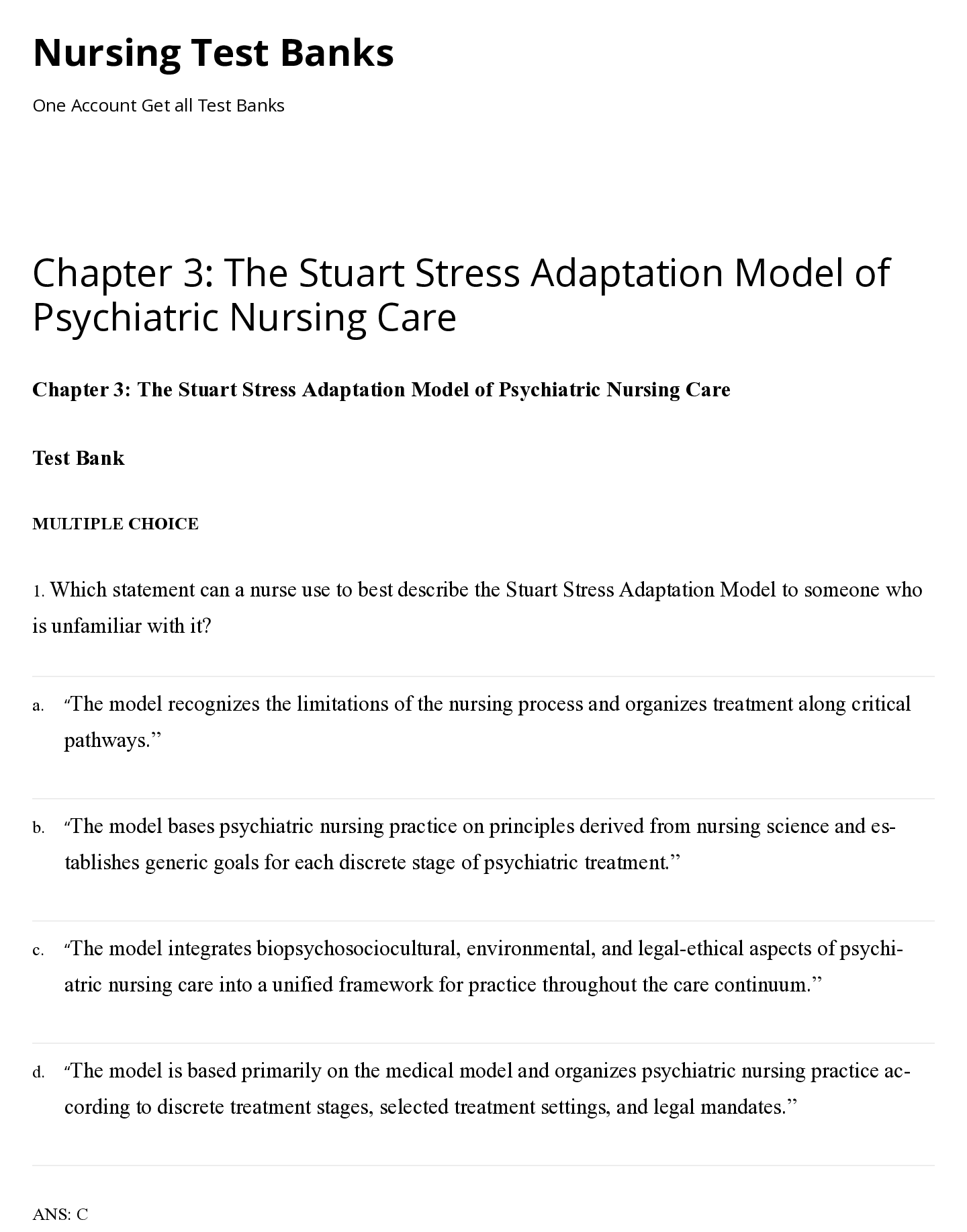
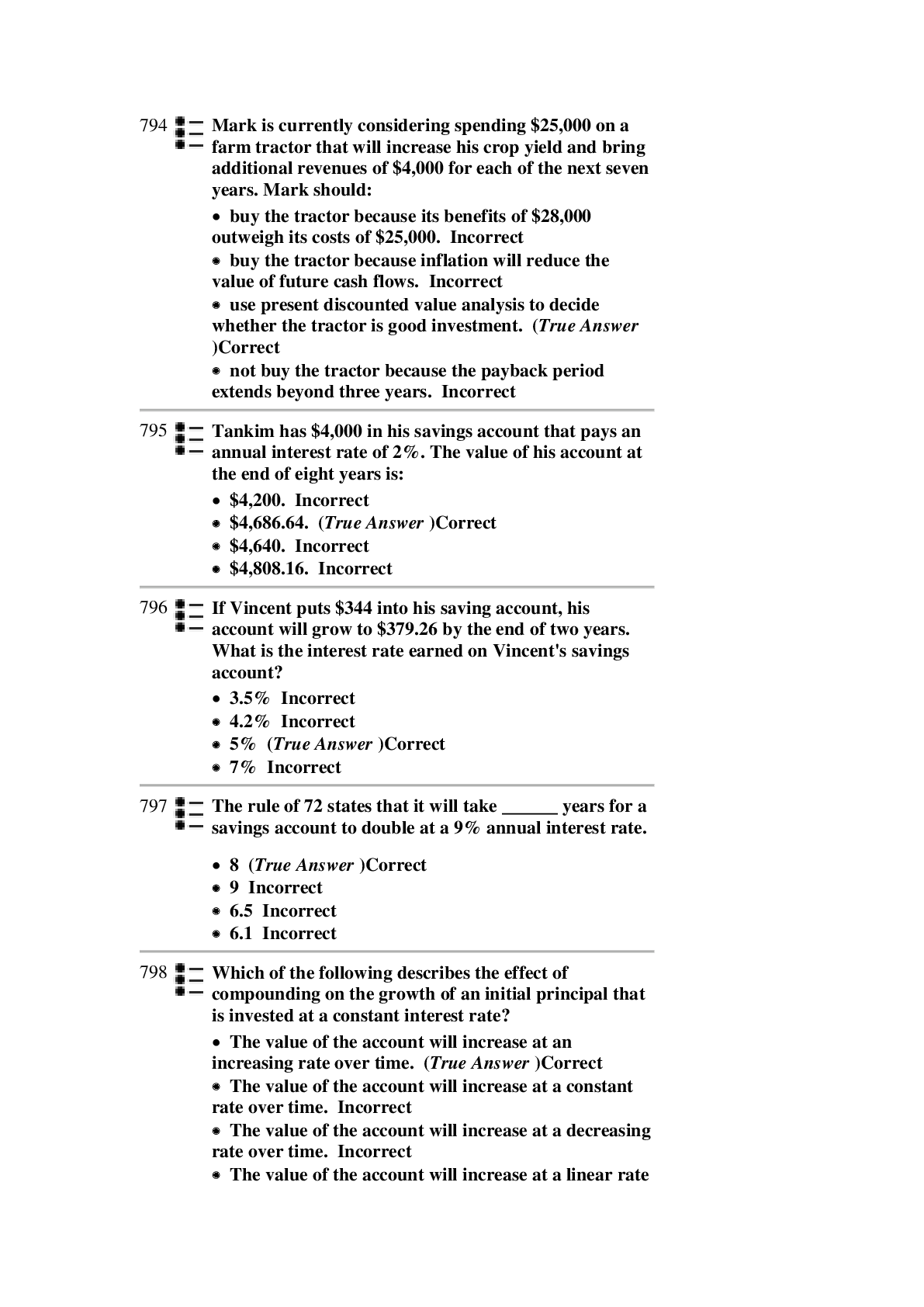

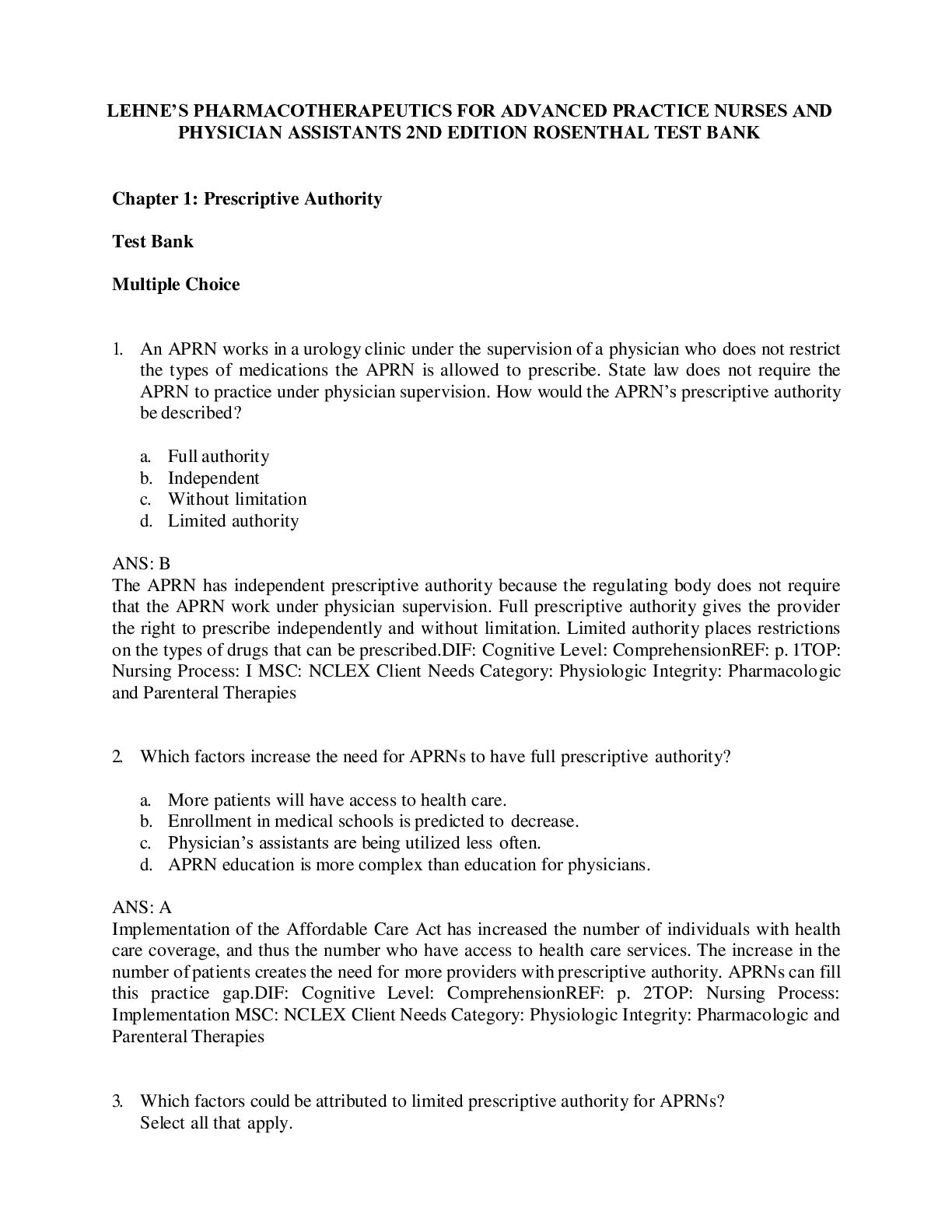
.png)



